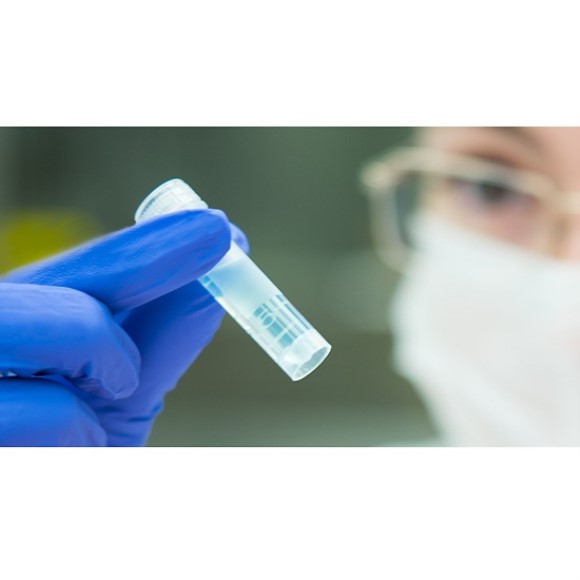PRODUCT DESCRIPTION:
This murine monoclonal antibody reacts with Human T-Lymphotropic Virus Type I (HTLV-I) surface protein, gp46. The antibody was raised by immunizing BALB/c mice with purified HTLV-I lysate. The epitope is located between amino acids 210-306 of the viral env gene. Cross-reactivity with the surface protein of HTLV-II (MoT) has been observed. The antibody is of the IgG1 subclass and has been purified from serum-free culture supernatant by concentration and ammonium sulfate precipitation. The antibody is greater than 85% pure as determined using SDS polyacrylamide gel electrophoresis. Anti-HTLV-I gp46 Clone 65/6C2.2.34 exhibits reactivity with viral lysates using solid-phase enzyme immunoassay and immunoblotting. It also reacts with HTLV-I infected cell lines using indirect immunofluorescence. The antibody immunoprecipitates gp46 surface protein from radiolabeled cell lysates, as well as viral precursor protein.
CONTENTS:
Each vial contains 100 µg of antibody in phosphate-buffered saline (PBS). No preservatives added.
RECOMMENDED USAGE:
The antibody is used to detect HTLV-I surface protein and its precursor in lysates prepared from virions or infected cells. Using immunoblotting and/or radioimmunoprecipitation analysis, the biosynthesis and metabolism of viral surface protein may be studied. Antibody dilutions should be prepared using buffers containing suitable protein in order to stabilize antibody activity. Optimal dilution of antibody must be determined experimentally by the investigator.
RECOMMENDED STORAGE:
Stable at -10°C or below. The material may be re-frozen after thawing. Repetitive freezing and thawing is not
recommended (aliquot as necessary). Thawed material may be stored at 4°C for short-term usage.
